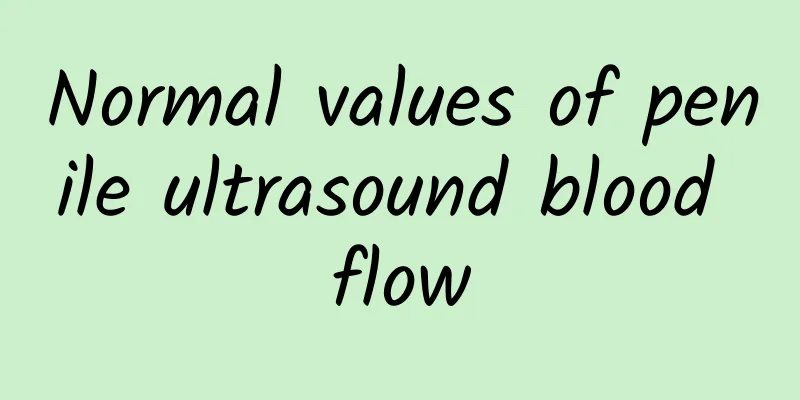How to treat testicular tumors?

|
The testicle is a very important part of the male reproductive organ. If there is a problem with the testicle, it is easy to lose the chance to become a father. This is the most worrying issue for male friends. Therefore, we remind everyone to pay more attention to the health of the testicles, detect the disease in time and treat it in time. Let's take a look at the symptoms and treatment of testicular tumors. 1. Enlarged testicles Most patients have varying degrees of testicular enlargement. Sometimes the testicles are completely replaced by tumors, with a hard texture and loss of normal elasticity. In the early stage, the surface is smooth, but in the late stage, it may be nodular and may adhere to the scrotum or even rupture. The scrotal skin may be dark red, and the surface often has tortuosity of blood vessels. If a tumor is occult, it is often felt in the abdomen, groin, etc., and the scrotum on the same side is empty. Some patients with testicular tumors also have hydrocele. 2. Pain Most patients lose testicular sensation and feel no pain. Therefore, it is generally believed that the tumor is a painless scrotal mass. It is worth noting that acute painful testicular tumors can also be seen in clinical practice, but they are often considered to be inflammation. The cause of pain is bleeding or central necrosis in the tumor, or pain caused by the testicular tumor invading the tissue outside the testicle. 3. Metastatic symptoms Testicular tumors mainly metastasize to lymph nodes, which are often found in the internal iliac, common iliac, para-aortic and diaphragmatic lymph nodes. The metastatic lesions can be very large and can be felt in the abdomen. Patients complain of waist and back pain. Patients with testicular villous carcinoma may experience breast hypertrophy and pigmentation of the nipple and areola. treatment 1. Radiation therapy After testicular removal of spermatocytoma, radiotherapy is performed, with 25-35Gy (2500-3500rad) for 3 weeks to irradiate the para-aortic and ipsilateral iliac and inguinal lymph nodes. 90%-95% of patients in stage I can survive for 5 years. If retroperitoneal lesions are clinically found, i.e. stage II, the septum and supraclavicular area are also irradiated with 20-35Gy (2000-3500rad) for 2-4 weeks, and the 5-year survival rate can reach more than 80%. 2. Chemotherapy (1) Indications: Patients with stage II or III disease who are not suitable for or do not want surgery; patients whose local tumors are confined to the testicles but who have cancer infiltration in the tissues after removal of the retroperitoneal lymph nodes; maintenance or salvage treatment after complete or partial remission after surgery, radiotherapy, or chemotherapy. (2) Contraindications: Patients with dysfunction of important organs such as the heart, liver, and kidney; patients with serious complications such as infection and fever; patients who are elderly or frail or have cachexia; and patients with severe bone marrow suppression. 3. Interventional radiology Testicular tumors are prone to metastasis to the lymphatic and blood vessels. Interventional radiology arterial regional chemotherapy and lymphatic perfusion chemotherapy play an important role in improving the prognosis, especially for patients in the middle and late stages. 4. Immunotherapy The causes of malignant tumors include reduced immunity, and surgical treatment, chemotherapy, and radiotherapy have a certain degree of suppression on the body's immune system. Therefore, in the comprehensive treatment of malignant testicular tumors, immunotherapy can still play a certain role as an adjuvant therapy. 5.Surgery Orchiectomy is suitable for any type of testicular tumor, and the emphasis is on the use of radical orchiectomy via the inguinal approach. Simple orchiectomy often fails to achieve complete surgical resection and needs to be combined with retroperitoneal lymph node dissection to achieve a radical cure. Many serious diseases are caused by improper living habits and then accumulated. We remind all male friends to pay attention to their testicular health, take off their underwear regularly, wash their genitals regularly, and be careful not to mess up their private lives. Use condoms during sex to avoid the spread of diseases. |
<<: What should I do if red spots appear on the glans?
>>: What kind of aerobics is better for men?
Recommend
Sperm clumps like jelly
Sperm is also an important component of fertilize...
What is the cause of the red pimples on the foreskin?
If there is any abnormality in the male foreskin,...
Why is the level of prostatic corpuscle secretion protein high?
The location of the prostate is very important fo...
How to get male genital herpes
Genital herpes is a common infectious sexually tr...
10 tips to make men energetic and charming
Modern fast-paced life requires not only hard wor...
How to reduce armpit fat, these methods are most effective
The armpit is where the main lymph nodes of the h...
What should I do if the tip of the glans is a little red and swollen?
Regarding the problem of foreskin being too long,...
Is internal examination required for caesarean section?
Many people don’t know what internal examination ...
Does hypospadias affect fertility?
Hypospadias can occur in both men and women. Hypo...
What causes male penis pain?
The structure of human organs is very complex. In...
Is the penis of a muscular man big?
Every man usually cares about the size of his pen...
What is the problem of men having short sex life?
Many men have a short time limit during sex due t...
How to extend the time for the first time
When men and women have sex for the first time, t...
Men feel weak after ejaculation
Many women have reported that their relatives hav...
Why do men get itchy down there?
You may be more familiar with the itching of wome...









